April 27, 2023 | Dr. Paolo Lusso
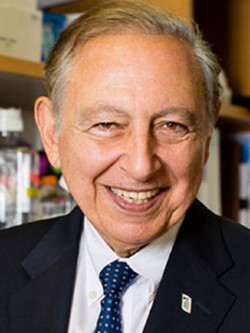
In this issue of the journal, we inaugurate a new series entitled “Milestones.” This series will encompass interviews with some of the pioneers that have laid the foundations of HIV research. Revisiting these landmarks while taking into account the prospect of their founders should be an inspiration to our readers, particularly the youngest generation. Nobody better than Dr. Robert Gallo could be the protagonist of the inaugural “Milestone,” with his recount of the discovery of HIV-1, the causative agent of AIDS, and the development of the first blood test to diagnose HIV-1 infection.
Robert C. Gallo is the discoverer of the first human retrovirus, HTLV-1, and the co-discoverer of HIV-1. Among his many seminal contributions are also the discovery of IL-2 and the development of the HIV blood test, which has helped save millions of lives worldwide. He has received innumerable prizes and awards, including two Lasker Prizes. He is the Co-Founder and Director of the Institute of Human Virology (IHV) in Baltimore and the Co-Founder and Scientific Director of the Global Virus Network (GVN). He was the most cited scientist in the world between 1980 to 1990.
Thank you so much for accepting to talk with us about your discovery that started the entire field of HIV research, which is the namesake of our journal. Last year, we commemorated the 40th anniversary of the publication of a short report in the CDC MMWR bulletin, describing a few cases of atypical pneumonia in homosexual men in Los Angeles. What were your thoughts when you first heard about this new disease? Did you immediately think that the causative agent could be a retrovirus?
Honestly, I did not pay much attention to it. It could have been just a cluster of uncommon infections like many others that remain totally inconsequential. And no, I did not immediately think the underlying cause could be a retrovirus until I started to really think about it.
But then, at some point, the new disease did catch your attention. How did it happen?
One day in early 1982, Jim Curran from the CDC came to the NIH to give a lecture on the epidemiology of these unusual infections and presented a clear picture of the risk groups: they were the same as for HTLV-1. This is when I started to really think it could be a retrovirus. It was a sunny day. After his lecture, we walked back together toward Bldg. 37, and he told me: “The epidemiologists have done their job. But where are the virologists?” That was a turning point for me. In the following months, clinicians started to send us patient samples from different cities and we started to culture their T-cells in search of an HTLV-1-related retrovirus. The first experiment in our lab books is dated May 1982.
Contact
Institute of Human Virology
Jennifer Gonzales
Public Relations & Communications Manager
jennifer.gonzales@ihv.umaryland.edu
Related stories
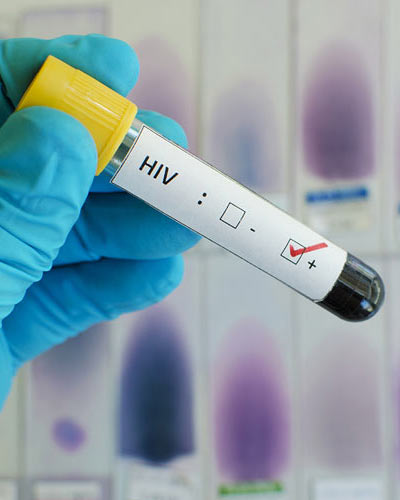
Monday, November 24, 2025
New Study Identifies Key Mechanism Driving HIV-Associated Immune Suppression
Researchers from the Institute of Human Virology (IHV) at the University of Maryland School of Medicine have discovered how a specific type of immune cell may contribute to the persistence of HIV infections. The finding offers new insight into why the virus remains difficult to cure even with effective antiretroviral therapy.
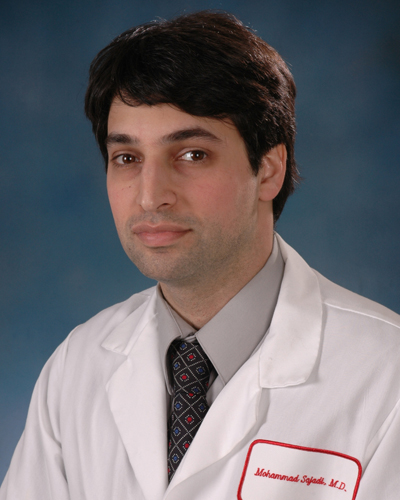
Wednesday, March 20, 2024
New Study Reveals Insights into Lack of Durability in COVID Antibody Response to Infections & Vaccines
Researchers at the Institute of Human Virology (IHV) at the University of Maryland School of Medicine published a new study in the Journal of Infectious Diseases investigating the short-lived antibody response following SARS-CoV-2, the virus that causes COVID.
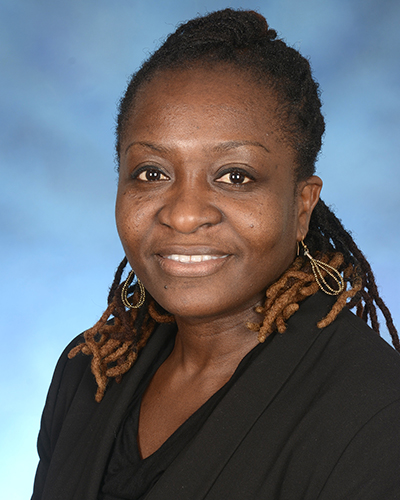
Thursday, June 22, 2023
STAT: A looming penicillin shortage threatens pregnant adults with syphilis and their newborns
Pfizer announced last week that it expects to run out of a key drug for treating syphilis in the near future — a looming problem that health professionals say could exacerbate syphilis rates, widen racial disparities in sexually transmitted diseases, and stymie global access to the antibiotic, especially within lower-income countries. The drug in question is Bicillin, an injectable, long-acting form of penicillin most commonly used to treat syphilis in adults as well as childhood infections.
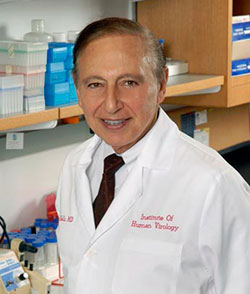
Thursday, March 30, 2023
Living Legend Dr. Robert Gallo and His Legacy at the University of Maryland School of Medicine’s Institute of Human Virology
Dr. Robert Gallo, MD, is internationally renowned as a co-discoverer of HIV, the cause of AIDS, and as a two-time recipient of the prestigious Albert Lasker Award – a program established in 1945 to honor individuals who have made major contributions to medical science or who have performed public service on behalf of medicine.

Wednesday, March 29, 2023
Dan Rodricks: What I didn’t know about Dr. Gallo
Until this week, when I looked deeper into his background for my current Sun column, I did not know Dr. Robert Gallo’s origin story as a scientist. It was the death of his six-year-old sister, Judith, when Gallo was a boy in Connecticut, that launched his career in cancer and virus research. He went on to become one of the leading biomedical researchers in the world, the co-discoverer of HIV and a founder of both the Institute of Human Virology in Baltimore and the Global Virus Network.

Tuesday, March 28, 2023
The Baltimore Sun: Dan Rodricks: Renowned scientist Robert Gallo takes on emeritus role at Baltimore’s Institute of Human Virology
Dr. Robert Gallo, co-discoverer of the human immunodeficiency virus that causes AIDS and one of the world’s most celebrated cancer researchers, has stepped down as director of the Institute of Human Virology that he established in downtown Baltimore 27 years ago. But it’s not like the 86-year-old virologist is retiring.

Monday, March 06, 2023
Eradicating Polio Will Require Changing the Current Public Health Strategy
The recent public health emergency declarations in New York and London due to polio infections and detection of the virus in these cities’ wastewater strongly indicate that polio is no longer close to being eradicated. Now, four members of the Global Virus Network (GVN) proposed changes in global polio eradication strategy to get the world back on track to one day eliminating polio’s threat.
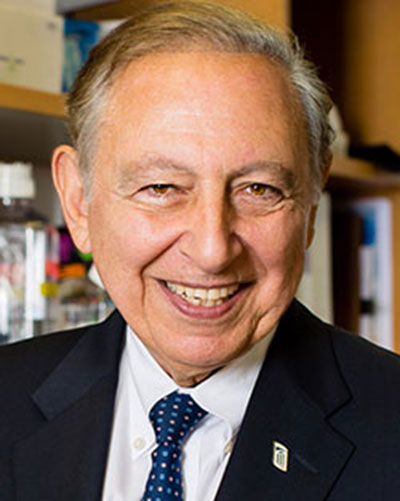
Tuesday, January 31, 2023
University of Maryland School of Medicine’s Institute of Human Virology Director Dr. Robert Gallo Co-Authors STAT Op-Ed with a U.S. Government Call to Action and Road Map for the Future of
STAT today published "How the Biden administration’s Covid preparedness policies could narrow America’s political divide" co-authored by leadership of the Global Virus Network (GVN), representing 68 Centers of Excellence and 11 Affiliates in 37 countries, and comprising foremost experts in every class of virus causing disease in humans and some animals. The opinion piece calls on the Biden Administration to “follow the science” in updating COVID-19 preparedness policies to align with the indefinite endemic phase the country is now facing.

Wednesday, January 18, 2023
BBC: The scientist who smuggled HIV in her bag into her country to study it and save lives
Acquired immune deficiency syndrome, AIDS, had been recognized as a new disease in 1981, when an increasing number of young homosexuals died of unusual infections and rare cancers. It was also known to affect intravenous drug users and some were known to have contracted it through blood transfusions.
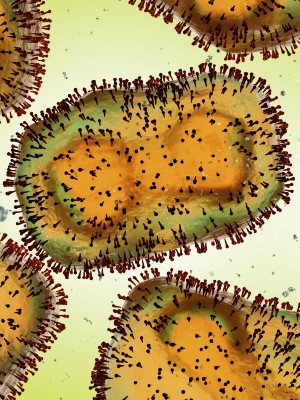
Wednesday, January 18, 2023
Baltimore Banner: Hunt for infectious disease treatments takes on new urgency
When monkeypox cases began spiking in early June, some of those infected and at risk were dismayed that there weren’t proven therapies ready. There was a promising treatment, tested in animals but not humans, for the infections regularly seen in Africa but rarely reported in Europe or North America. The drug was used sparingly before the emergency began abating. But instead of putting the tecovirimat, or TPOXX, back on the shelf, researchers at Johns Hopkins and elsewhere launched a major study to confirm it worked for monekypox, now known as mpox.

Friday, January 06, 2023
USA Today: Fact check: Research proves HIV is the cause of AIDS, contrary to viral claim
The claim: There is no proof HIV is the cause of AIDS. A Dec. 15 Facebook video shows Kary Mullis, a scientist known for denying the link between HIV and AIDS, claiming again there is no proof HIV is the cause of AIDS. The post was shared more than 1,000 times in a week. The clip comes from a 2009 documentary that promoted AIDS denialism, which has more than 300,000 views on YouTube.

Wednesday, December 21, 2022
Lead Stories: Fact Check: Doctor Did NOT Say On Video That He Manufactured AIDS As Bio Weapon -- This Is A Soviet-Era Disinformation Hoax
Did an American doctor admit on video that he created the HIV and AIDS viruses in a U.S. military medical laboratory, Fort Detrick, so that they could be used as biological weapons for depopulating the world? No, that's not true: Dr. Robert Gallo, the doctor featured in the video, makes no such admission in the footage, and told Lead Stories that his scientific work was not part of any plan to weaponize HIV/AIDS. Historical records show that the claim is a well-documented hoax that dates to a Soviet disinformation campaign from the 1980s.
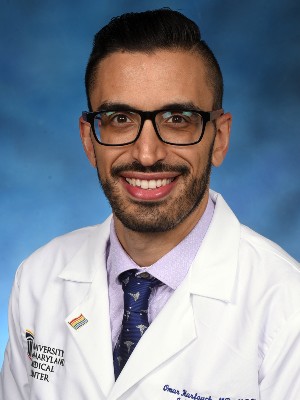
Thursday, December 01, 2022
Everyday Health: 10 Facts About HIV/AIDS Everyone Should Know
A basic understanding of HIV and AIDS can help dispel the myths, erase stigma, prevent virus transmission, and save lives — beginning with your own.
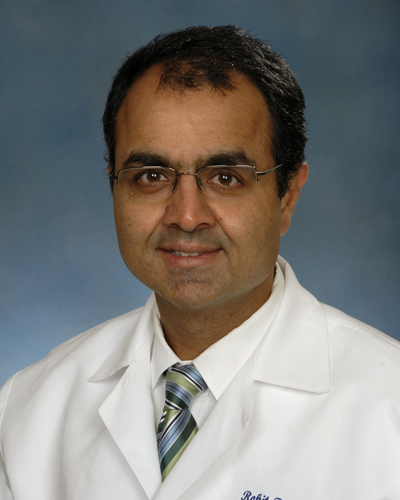
Wednesday, September 28, 2022
TheBody: What Is HIV Remission?
A cure for HIV remains elusive, but one word that is commonly heard is “remission.” Even though it doesn’t mean eradication of the virus, remission is a good thing. But what exactly is remission? Can HIV go into remission? And how does it differ from a cure? Generally, remission means that a disease has stopped being active but hasn’t necessarily been eliminated.

Monday, September 19, 2022
TheBody: HIV Seroconversion: Timeline, Symptoms, Testing, and Treatment
There are several stages of HIV infection—from the initial exposure to the virus to the development of AIDS—but a lot of important changes happen during the earliest stage: seroconversion. So, exactly what is HIV seroconversion? It is the stage in which the immune system first starts to make antibodies to try to fight HIV after exposure. Once detectable levels of antibodies are produced, this is described as seroconversion.

Monday, September 19, 2022
TheBody: What Are the Chances of Getting HIV from One Exposure?
You had a one-night stand with someone of questionable HIV status. Now the panic begins. Could you have HIV after only one exposure? What are the odds?
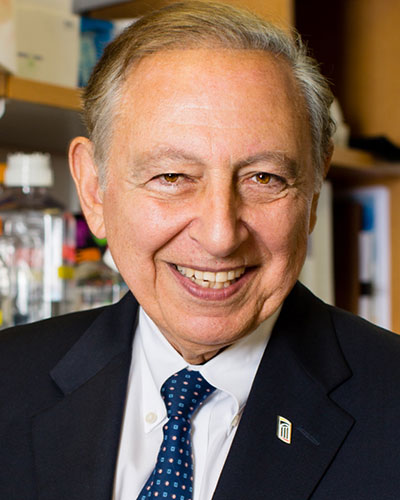
Tuesday, August 09, 2022
CNBC: ‘We don’t even agree on how to define it yet’: It’s year three of the pandemic and scientists still know very little about long COVID
We’ve entered year three of the pandemic, and experts still know very little about long Covid, including how to cure its symptoms. On July 20th and July 21st, the Global Virus Network hosted the first-ever conference devoted solely to the science of long COVID. There, scientists spoke openly about what is known about the mysterious condition and the questions that remain.

Monday, July 25, 2022
Institute of Human Virology at the University of Maryland School of Medicine Supports First-of-Its-Kind Conference to Evaluate the Public Health Magnitude of Long COVID And Define A Global R
The conference, hosted at the University of Maryland, Baltimore, reviewed the wealth of cohort data on long COVID, constructed a framework to characterize and define the conditions, and identified the most critical and urgent areas of research needed to better understand, diagnose, and treat this developing public health crisis.

Friday, July 22, 2022
STAT: ‘There’s no one long COVID’: Experts struggle to make sense of the continuing mystery
Presented by the Global Virus Network, a coalition of leading virologists, the two-day virtual conference convened at the University of Maryland, Baltimore where experts across disciplines and around the world to ask and answer questions about what causes long COVID, how to predict who gets it, how to treat it, and just possibly how to prevent it.

Tuesday, May 31, 2022
Medscape: Fatigue Affects Cognitive Processing Speed in the Aging HIV Population
Successful aging is something that most of us strive for. But with aging comes a pervasive condition called fatigue that, in many older adults, interferes with everyday functioning, mental health, social support, and overall quality of life. The relationship between fatigue and cognitive and functional impairment is one of particular interest in people living with HIV (PWH), a patient population that is disproportionately affected but whose lifespan now matches that of the general population.

Tuesday, May 24, 2022
Baltimore Sun: Monkeypox ‘isn’t COVID,’ but CDC still wants public to be aware of cases
Officials from the U.S. Centers for Disease Control and Prevention warned the public and medical providers Monday to be on alert for possible cases of monkeypox as it counts up to five cases of the normally rare disease around the nation. But the officials say the threat to the general public remains low, as it’s just not as easily spread as other diseases such as COVID-19. Rather, it takes touching or sharing fluids with someone with the characteristic monkeypox rash.
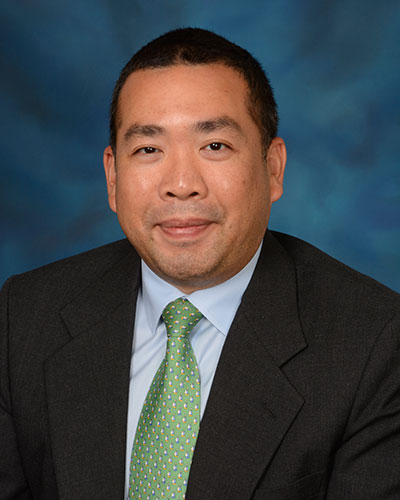
Friday, May 20, 2022
NIH Grant Awarded to Study HIV Drug-Resistant Genetic Mutations Across Africa
University of Maryland School of Medicine (UMSOM)’s Institute of Human Virology (IHV) researchers received funding from the National Institutes of Health’s National Institute of Allergy and Infectious Diseases (NIAID) for $2.7 million to study genetic changes in two genes from the HIV-1 virus that may make it resistant to antiretroviral therapy. The study, named INSPIRE, will analyze genetic variation in types of HIV circulating in a handful of African countries that will help to better understand the implications of these mutations and will improve clinical management of patients.
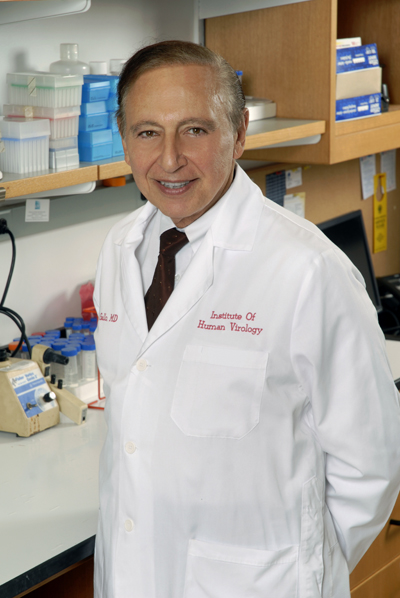
Thursday, May 19, 2022
Baltimore Sun: With COVID cases rising, you’re still not fully vaxxed or boosted? Come on now.
Dan Rodricks: I recently had conversations with a middle-aged man who is extremely careful about what he puts into his body. He eats lots of fruits and vegetables and stays away from red meat and processed foods. He also refuses to get the vaccine against COVID-19, even as infections are on the rise again.
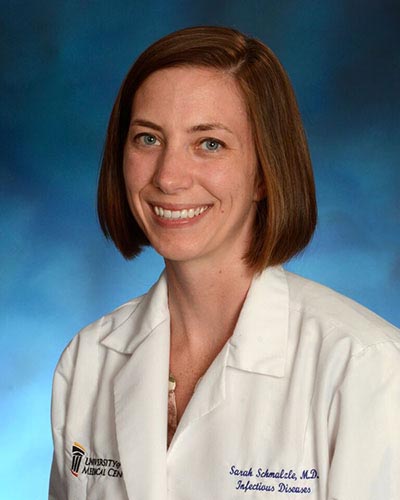
Tuesday, May 10, 2022
Medscape: Decentralizing PrEP Offers a Roadmap for Retention
Good solutions have great roadmaps. For HIV preexposure prophylaxis (PrEP), the road map might just be that of contraceptive care. Once an onerous process, over time contraceptive care exploded into a range of options across a broad landscape in terms of approach and accessibility. How then do organizations help vulnerable patients navigate their PrEP journeys using the contraceptive roadmap as a guide?

Tuesday, April 05, 2022
UM School Of Medicine Institute of Human Virology’s Robert Gallo Receives Distinguished Alumni Award by the University of Chicago Medical Association
Robert Gallo, MD, The Homer & Martha Gudelsky Distinguished Professor in Medicine, Co-Founder and Director of the Institute Human Virology at the University of Maryland School of Medicine and Co-Founder and Chair of the Scientific Leadership Board of the Global Virus Network, was awarded the Distinguished Alumni Award by the University of Chicago Medical & Biological Sciences Alumni Association (UChicago MBSAA) for his lifetime achievements. Honorees will participate in a panel discussion on May 10 and will be presented the award on May 21 at the Hyde Parke campus.

Friday, March 18, 2022
Deutsche Presse-Agentur: Virus hunt for decades: US researcher Robert Gallo turns 85
Few scientists in the world can come up with as many successes as Robert Gallo: The US researcher was involved in the discovery of the AIDS virus, found leukemia pathogens and other deadly viruses. Now he is 85 - and works even harder than before.
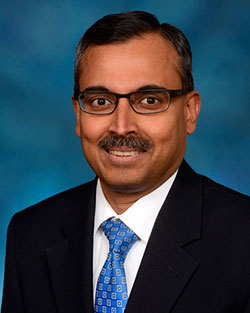
Thursday, March 10, 2022
Healthline: HIV-1 May Be More Virulent When Transmitted Through Penile-Vaginal Intercourse
HIV-1 can be transmitted through vaginal, anal, and oral sex, whether it’s with a same-sex or different-sex partner. But the risk of developing it seems to vary depending on how the disease is transmitted. In fact, the HIV virus may be more virulent when passed between male and female partners who have penile-vaginal sex than among men who have anal sex with other men, according to a new study from the Indian Institute of Science.
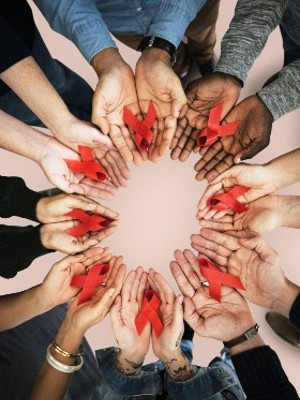
Thursday, March 10, 2022
HIV Plus: One Woman Shares Her Journey of Living with HIV for Over Three Decades
In honoring long-term survivors and National Women and Girls HIV Awareness Day on March 10, I had the opportunity to speak with Ms. Kathy Bennett. She is a 63-year-old Black woman who has been living with HIV for over 31 years. She recently led the longest running HIV support group in Maryland.

Wednesday, February 23, 2022
TIME: Knowing the Origins of COVID-19 Won't Change Much
Over two years since the first cases started appearing in Wuhan, China, there is much we don’t know about the origins of SARS-CoV-2, the virus causing COVID-19. But a quick resolution to that question is possible: scientists could find bats in a cave somewhere in China or in southeast Asia and trace a chain leading from those bats to the COVID-19 outbreak in Wuhan. Realistically, however, recent history offers little promise for this to happen quickly.

Wednesday, February 16, 2022
WBAL: Maryland HIV researcher on latest research: It's not a cure
Scientists used a cutting-edge stem cell transplant method to treat a woman's HIV, but a lead researcher in Maryland said it's too soon to celebrate. A U.S. woman is the third known person who is in HIV remission after receiving stem cells from umbilical cord blood, an American research team announced Wednesday.

Tuesday, February 08, 2022
The New Yorker: Beyond the Booster Shot
Could a “broad spectrum” booster increase our immunity to many pathogens simultaneously? The first tuberculosis vaccine was developed in 1921, by two French scientists, Albert Calmette and Camille Guérin. It was called Bacillus Calmette-Guérin, or B.C.G., and has long been one of the world’s most widely administered shots. From the beginning, its power was surprising. B.C.G. contains a bacterium similar to the one that causes TB, and engenders an immune defense specific to that disease. But, as Calmette noted in a paper in 1931, those vaccinated with B.C.G. at birth were around seventy-five per cent less likely to die in their early years of any cause.
.jpg)
Monday, February 07, 2022
The GW Hatchet: University administers first doses of mRNA HIV vaccine through Moderna partnership
GW was one of the first institutions in the country to administer doses of the first mRNA HIV vaccines to human test subjects late last month. The School of Medicine and Health Sciences and its Vaccine Research Unit collaborated with Moderna to test the safety of the vaccine and the immune responses of two participants in the phase 1 clinical trial.

Friday, February 04, 2022
WYPR: How the COVID pandemic rattled HIV testing
The COVID pandemic did not end the HIV-AIDS epidemic; it may have obscured it for a while, raising hurdles to getting tested for HIV.
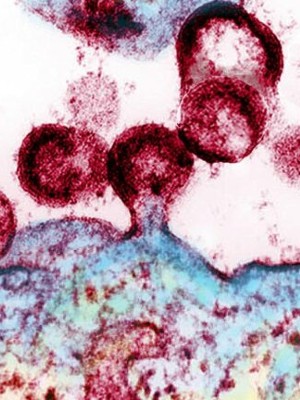
Wednesday, January 26, 2022
STAT: Early research suggests cancer drug could help flush HIV from its hiding spots
In a study published Wednesday in Science Translational Medicine, researchers looked at 32 patients that had both cancer and HIV and found that pembrolizumab, which revives the immune system and encourages it to attack tumors, also has the ability to flush HIV out of its hiding spot in immune cells.

Tuesday, January 04, 2022
Economy.bg: What do scientists want for 2022?
Economy.bg asked scientists from Bulgaria and the world what they hope for in 2022.
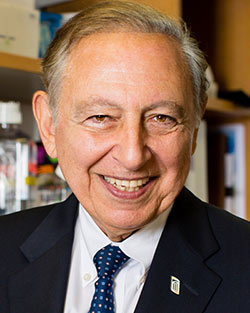
Wednesday, December 22, 2021
Economy.bg: The year through the eyes of scientists
Economy.bg asked scientists in our country and around the world what they think is the most important of the past 2021

Thursday, December 16, 2021
Ren TV (Russia): Virologist who discovered HIV urged to vaccinate children
Robert Gallo, director and co-founder of the Institute of Human Virology at the University of Maryland and co-founder of the Global Virus Network, discussed why it is important to vaccinate children against coronavirus.

Wednesday, November 10, 2021
Omaha World-Herald: UNMC researchers develop 'molecular scissors' to target HIV
Researchers at the University of Nebraska Medical Center have used a new method they’re calling a “molecular scissors” to nearly eliminate HIV embedded in the genetic material of human cells.

Tuesday, October 26, 2021
Correio Braziliense: "It's obvious that no vaccine causes AIDS," says one of the virologists who discovered HIV
The virologist, and one of the discoverers of HIV, speaks to Correio about statements by President Bolsonaro live on social media
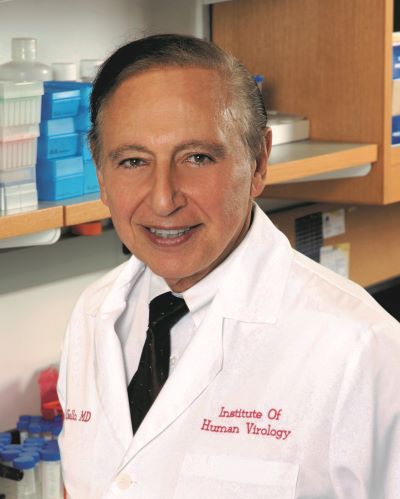
Friday, July 23, 2021
WUSA: VERIFY: Here's a look at Japan's vaccination plan
People online claim the Olympics are in jeopardy because the country has no plan to vaccinate its population. That's false.
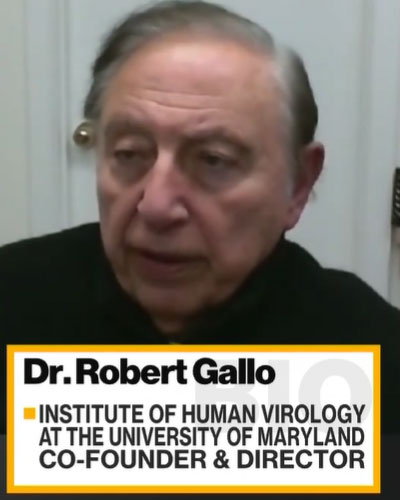
Thursday, July 08, 2021
Bloomberg News: Dr. Gallo Says COVID-19 Is a Solvable Problem
Dr. Robert Gallo, The Global Virus Network Co-founder and Director at University of Maryland says COVID-19 is a solvable problem, as obviously it was easy to get a solvable vaccine.
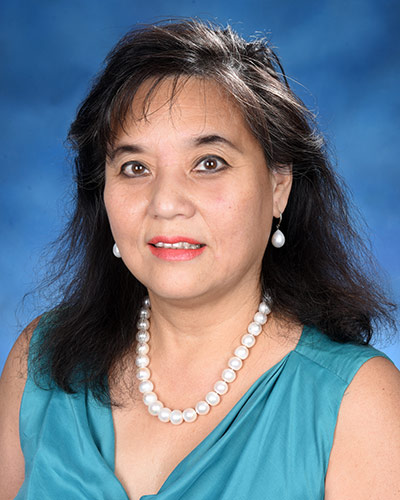
Tuesday, July 06, 2021
UM School of Medicine Researchers Receive NIH Avant-Garde Award for Out-Of-Box Concept to Cure HIV and Treat Co-Existing Addiction
Linda Chang, MD, MS, Professor of Diagnostic Radiology & Nuclear Medicine at the University of Maryland School of Medicine (UMSOM), received the National Institute on Drug Abuse (NIDA) 2021 Avant-Garde Award (DP1) for HIV/AIDS and Substance Use Disorder Research, a National Institutes of Health (NIH) Director’s Pioneer Award. This prestigious award supports researchers with exceptional creativity, who propose high-impact research with the potential to be transformative to the field. She will work with Institute for Human Virology (IHV) researchers for this project.
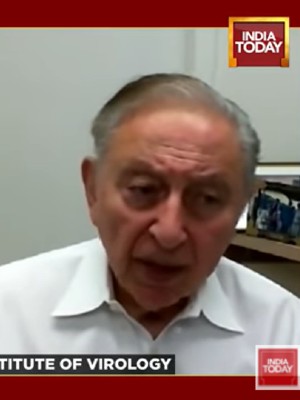
Saturday, July 03, 2021
India Today: Exclusive: Virologist Dr. Robert Gallo Speaks On Third Wave, Effects On Children & Other COVID Issues
Will India and the world see a third wave, if yes then when? How much the third wave will affect children? If mRNA vaccine is the future of COVID-19 vaccines? World's top virologist, Dr. Robert Gallo, answers these and many other questions related to COVID-19 and its vaccination in an exclusive conversation with Rajdeep Sardesai.
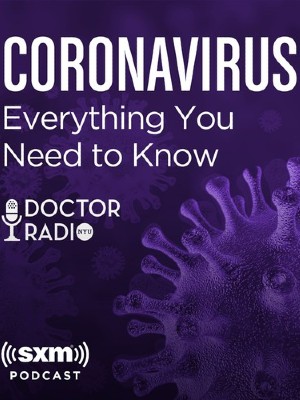
Friday, June 25, 2021
Doctor Radio: What We Know About the Virology of COVID-19
Dr. Marc Siegel talks to the Co-founder & Director of the Institute of Human Virology at the University of Maryland School of Medicine and Co-founder for the Global Virus Network, Dr. Robert Gallo, as well as the President of the Global Virus Network, Dr. Christian Brechot, about COVID-19 Origin, Immunity, Vaccines, and Variants.
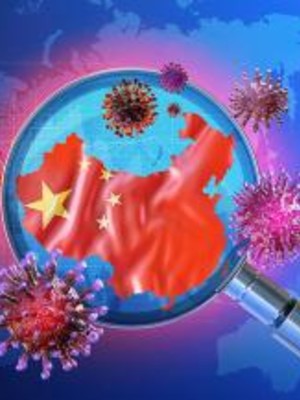
Friday, June 25, 2021
Weather Channel: Mystery Thickens Over COVID-19's Origin; Claims of Hidden Early Genetic Information Attracts Further Scrutiny
COVID-19 pandemic has been wreaking worldwide havoc for nearly 20 months now. Yet, Its origin and early spread continue to be one of the most intriguing scientific puzzles of recent history. Claims that the earliest coronavirus strains leaked out from a lab in the Wuhan Institute of Virology in China have resurfaced and subsided multiple times, throughout the course of the pandemic. While many such claims were eventually disregarded as unfounded speculations of conspiracy theorists, allegations have continued against the Wuhan lab having known about the infection and its subsequent threat, much before the world at large was aware.

Tuesday, June 22, 2021
The Washington Post: Wuhan lab’s classified work complicates search for pandemic’s origins
The Wuhan lab has drawn global scrutiny because of its research on bat coronaviruses in the city where the pandemic began. The events have shined a light on a research niche that — in China, the United States and elsewhere — operates with heightened secrecy because of the national security risks of handling deadly pathogens.
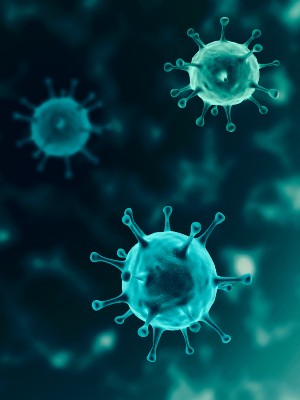
Monday, June 21, 2021
Reuters: India should brace for third COVID-19 wave by Oct, say health experts
A third wave of coronavirus infections is likely to hit India by October, and although it will be better controlled than the latest outbreak the pandemic will remain a public health threat for at least another year, according to a Reuters poll of medical experts.
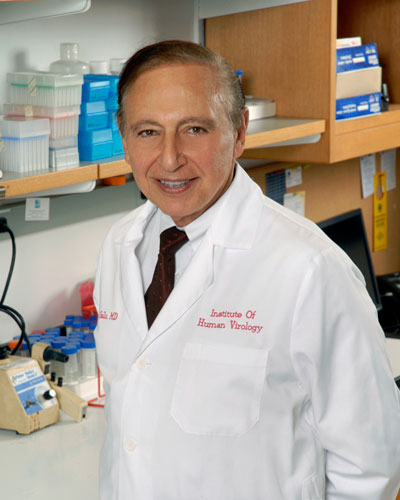
Thursday, June 17, 2021
Big Biology Podcast: Old vaccines for new pandemics (Episode 66)
What has COVID-19 taught us about preparing for future epidemics? Can we trigger innate immune responses – our first lines of defense - to mitigate novel infections? Can we use live-attenuated vaccines (LAV) meant for other infections to protect us while we develop specific vaccines for new pathogens? On this episode, we talk to virologists Konstantin Chumakov and Robert Gallo about their recent paper entitled “Old vaccines for new infections”.
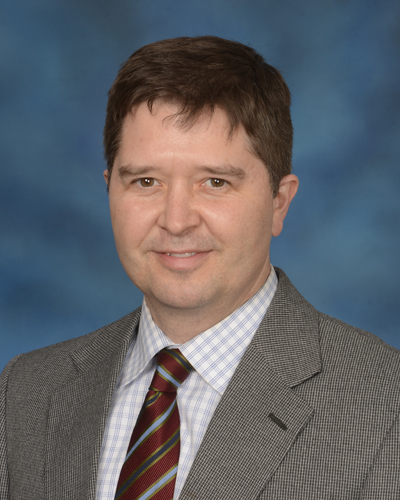
Monday, June 07, 2021
POZ: Integrate Adult and Pediatric HIV Care to Ease Youth Transition to Adult Care
Embedding an adult HIV medicine clinician and care navigator into a Baltimore pediatric HIV clinic led to 95% of young people remaining engaged in adult care one year after transition, according to a report in AIDS Care.
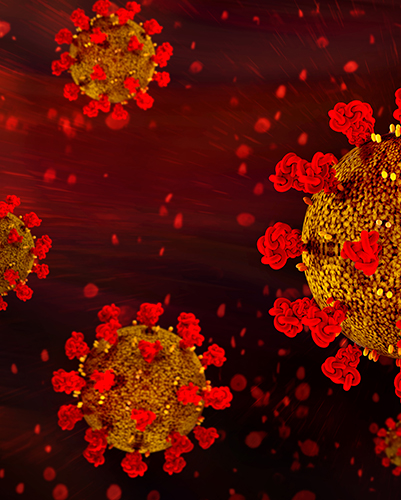
Thursday, June 03, 2021
Slate: A Very Calm Guide to the Lab Leak Theory
More than a year into the COVID-19 pandemic, scientists still aren’t sure where exactly the virus that caused this mess came from, and how it was able to spread so rapidly among humans. With the origins of the coronavirus still up in the air, there’s been a lot of talk of the so-called lab leak theory—the idea that the virus spread to people in a laboratory accident, rather than jumping from a wild animal to a human. In recent days, there’s been a flurry of speculation, and it can be hard to parse what the lab leak theory is all about, how likely it is, and why it matters at all. Here’s our attempt to sort some of that out.

Tuesday, June 01, 2021
SciDevNet: ‘Old vaccines can fight new pandemics like COVID-19’
Inoculation with live attenuated vaccines (LAV) such as those used against TB, polio or measles can stimulate the immune system to provide protection against other infectious diseases, including COVID-19, says a new study. People who have been inoculated with one or more LAVs but have no access to the new, specific vaccines against COVID-19 — typically because they are expensive or in short supply — may have some protection during the current pandemic, according to the study.
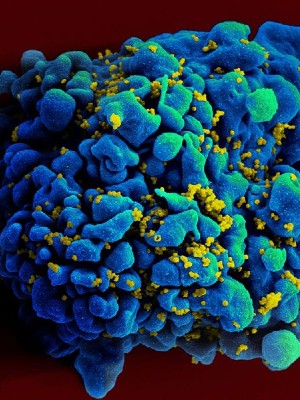
Thursday, May 27, 2021
Baltimore Sun: Maryland researchers study whether HIV cure can come from infusing patients with genetically modified ‘super T cells’
A week ago, a Washington, D.C., man in his 30s with HIV became the first person to be infused with a heaping load of his own genetically modified cells that a Maryland biotech firm believes one day could lead to the elusive cure for the disease. American Gene Technologies’ method involves taking T cells out of a person’s blood and genetically modifying them in the lab to resist infection before they are reinfused. C. David Pauza is the company’s chief science officer and a former professor and researcher at the University of Maryland School of Medicine’s Institute for Human Virology. Another center evaluating entering the study is Maryland’s Institute for Human Virology, confirmed its co-founder and director, Dr. Robert Gallo, who is internationally regarded for his role in discovering HIV and developing a blood test to detect it.
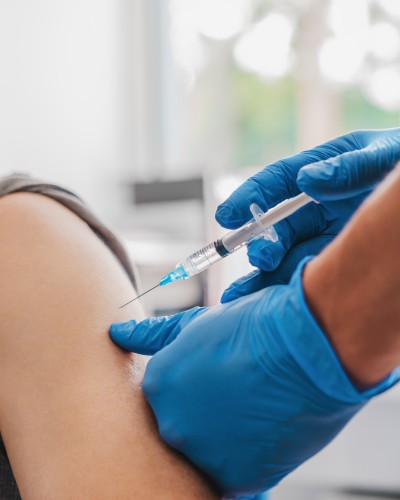
Tuesday, May 18, 2021
Institute of Human Virology Leadership Contributes to Global Virus Network Analysis Suggesting Measles, Polio and Tuberculosis Vaccines May Boost Immunity to Coronavirus
Institute of Human Virology at the University of Maryland School of Maryland scientists, who are also members of the Global Virus Network (GVN), a coalition comprised of human and animal virologists from 63 Centers of Excellence and 11 Affiliates in 35 countries, and colleagues today published a perspective proposing that live attenuated vaccines (LAVs), such as those for tuberculosis, measles, and polio, may induce protective innate immunity that mitigate other infectious diseases, triggering the human body’s natural emergency response to infections including COVID-19 as well as future pandemic threats.

Monday, April 19, 2021
Bloomberg TV: Will Vaccines Protect Us From All Covid-19 Variants?
Dr. Robert Gallo, co-founder of the Global Virus Network and director of the Institute of Human Virology at the University of Maryland School of Medicine, discusses the global rollout of Covid-19 vaccines. Global cases passed 141 million, and deaths exceeded 3 million. Gallo speaks with Haidi Stroud-Watts and Shery Ahn on "Bloomberg Daybreak: Australia."

Monday, April 19, 2021
China Business Network: An interview with Dr. Gallo on COVID-19, Variants and Vaccines
In an exclusive interview with CBN, Dr. Robert Gallo, a world-renowned virus expert, speculated that certain components of Johnson & Johnson and AstraZeneca vaccines may induce the immune system to produce an antibody, which can cause a very small number of people. Heparin-induced thrombocytopenia, thrombosis.

Friday, April 09, 2021
Aljazeera: Which vaccine is best? The one you can get first, experts say
As the United States ramps up its COVID-19 inoculation campaign, aiming to make vaccines available to all adults by April 19, some doctors and health workers are concerned that brand preferences among potential vaccine recipients could hurt attempts to slow the spread of the virus.

Thursday, April 01, 2021
A Statement from the Leadership of the University of Maryland School of Medicine’s Institute of Human Virology on the Passing of Dr. John Martin
The Institute of Human Virology at the University of Maryland School of Medicine mourns the passing of IHV 2014 Lifetime Achievement Public Service Awardee and 2017 Annual Marlene and Stewart Greenebaum Lecturer, John Martin, PhD. Dr. Martin was a leader in supporting access to life-saving anti-HIV medications that although still under patent were made widely and affordably available to millions around the world infected with HIV, and for prevention through pre-exposure drug therapy. He was a tremendous clinical scientist, businessman, global public health leader, philanthropist, and good friend.
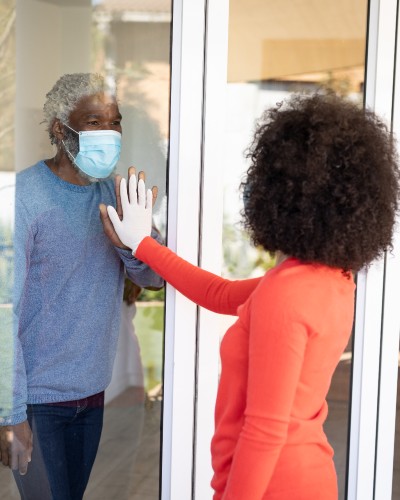
Thursday, April 01, 2021
Associated Press: Can I still spread the coronavirus after I’m vaccinated?
Can I still spread the coronavirus after I’m vaccinated? It’s possible. Experts say the risk is low, but are still studying how well the shots blunt the spread of the virus. The current vaccines are highly effective at preventing people from getting seriously sick with COVID-19.
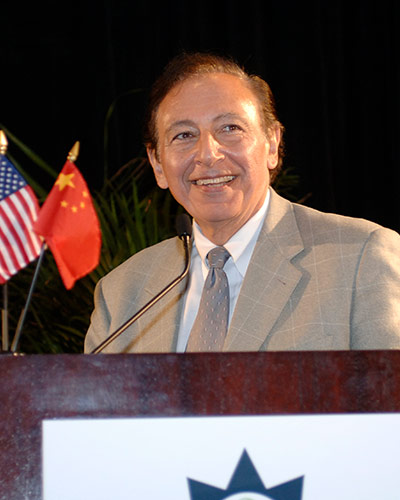
Monday, December 21, 2020
Robert Gallo of the UM School of Medicine Institute of Human Virology and Global Virus Network Awarded Top Life Sciences and Medicine Prize from China
Robert C. Gallo, MD, The Homer & Martha Gudelsky Distinguished Professor in Medicine, co-founder and director of the Institute Human Virology at the University of Maryland School of Medicine and co-founder and international scientific advisor of the Global Virus Network, was awarded the “VCANBIO Award for Biosciences and Medicine,” a significant and authoritative award in the life sciences and medicine field of China. The elite Prize is jointly presented by the University of Chinese Academy of Sciences and the VCANBIO CELL & GENE ENGINEERING CORP, LTD to push forward scientific research, technological innovation and continuous development in the life sciences and medicine field of China.

Friday, December 18, 2020
UMSOM Institute of Human Virology's Robert Gallo Awarded Italy's Magna Graecia International Prize
Robert Gallo, MD, The Homer & Martha Gudelsky Distinguished Professor in Medicine, co-founder and director of the Institute Human Virology at the University of Maryland School of Medicine and co-founder and international scientific advisor of the Global Virus Network, was awarded Italy’s “Magna Graecia International Prize,” an award created in 1997 by the Magna Graecia Foundation that is bestowed to the most influential Italians and Italians of origin who have embodied and symbolized, in the most diverse sectors, the best qualities of Italy by extending Italian culture beyond national borders.

Thursday, October 08, 2020
NPR: Could The Live Flu Vaccine Help You Fight Off COVID-19?
In case you were still procrastinating getting a flu shot this year, here's another reason to make it a priority. There's a chance the vaccine could offer some protection against COVID-19 itself, says virologist Robert Gallo, who directs the Institute of Human Virology at the University of Maryland School of Medicine and is chairman of the Global Virus Network.

Thursday, September 24, 2020
Baltimore Sun: A vaccine will help, not end coronavirus pandemic, experts in Maryland and globally say
A global group of virus experts warned Thursday about relying too much on the first vaccines to end the coronavirus pandemic. “If we get a perfect vaccine, great, but that’s unlikely,” said Dr. Robert Gallo, co-founder of the Global Virus Network, during a news conference following a meeting of the organization that works to understand and treat infectious diseases.
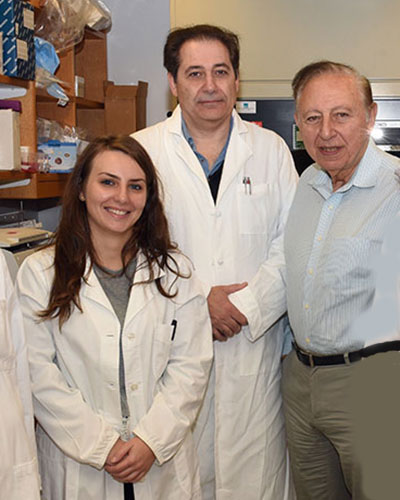
Friday, August 21, 2020
Institute of Human Virology and Italian Researchers identify a SARS-CoV-2 Viral Strain with Deletion in a Protein, Possibly Reducing Fatalities
The Institute of Human Virology (IHV) at the University of Maryland School of Medicine, a Global Virus Network (GVN) Center of Excellence, in collaboration with scientists from Campus Biomedico in Rome, Italy announced today the results of studies showing the emergence of a SARS-CoV-2 viral strain with a deletion in a protein known as nsp1. These data, accepted for publication today by the Journal of Translational Medicine, (link here) may indicate the emergence of a less pathogenic viral strain.

Monday, August 03, 2020
Infectious Disease Special Edition: COVID-19 and HIV: Was It a Deadly Mix?
Social distancing is one of the curses of COVID-19, and may fall more heavily on people with HIV than on those without this burden. “People with HIV, and in particular certain subsets of that group—the LGBTQ community, older adults aging with HIV, etc.—face more mental health issues than the general population,” said Sarah Schmalzle, MD, an assistant professor of medicine at the Institute of Human Virology, University of Maryland School of Medicine, in Baltimore. “Many of our patients also already face significant isolation and loneliness due to a combination of HIV stigma, losses of friends and family to HIV, and aging.”

Tuesday, July 07, 2020
Courthouse News Service: Global Progress on Ending HIV/AIDS Derailed by Covid-19
A United Nations program aimed at eliminating HIV/AIDS released a report Monday showing that the global response to the epidemic has fallen far short of goals set for 2020, in large part due to the coronavirus pandemic.

Tuesday, June 30, 2020
Wall Street Journal Op-Ed: An Old Vaccine May Help Against Coronavirus: A tablet for polio boosts innate immunity, which fights other viruses.
In this op-ed coauthored by Dr. Robert C. Gallo and Daniel J. Arbess, they discuss how “An Old Vaccine May Help Against Coronavirus: A tablet for polio boosts innate immunity, which fights other viruses.”

Monday, June 29, 2020
Baltimore Magazine Special Edition: Dr. Gallo Featured
Dr. Robert Gallo is featured in Baltimore Magazine's special edition, "On the Front Lines: Acts of Courage and Kindness in the Age of Coronavirus."

Thursday, June 11, 2020
Global Virus Network Suggests Oral Polio Vaccine May Provide Temporary Protection Against COVID-19
The Global Virus Network (GVN), a coalition comprised of the world’s preeminent human and animal virologists from 53 Centers of Excellence, including the Institute of Human Virology at the University of Maryland School of Medicine, and 10 Affiliates in 32 countries, published a viewpoint in Science today that the stimulation of innate immunity by live attenuated vaccines in general, and oral poliovirus vaccine (OPV) in particular, could provide temporary protection against coronavirus disease 2019 (COVID-19).

Friday, May 01, 2020
NYT Op-Ed Features Gallo-Chumakov Oral Polio Vaccine for COVID-19 Idea
What if We Already Have a Coronavirus Vaccine? Researchers are testing whether decades-old vaccines for polio and tuberculosis could protect against infection.
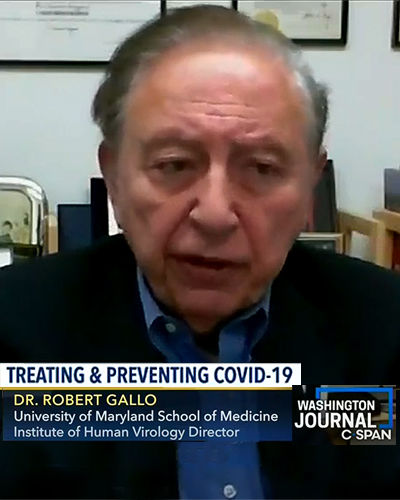
Wednesday, April 29, 2020
Dr. Robert Gallo Appears on C-SPAN’s Washington Journal
Please check out Dr. Robert Gallo’s C-SPAN Washington Journal appearance today to discuss COVID-19 treatments, vaccines, the need for the Global Virus Network, and more.
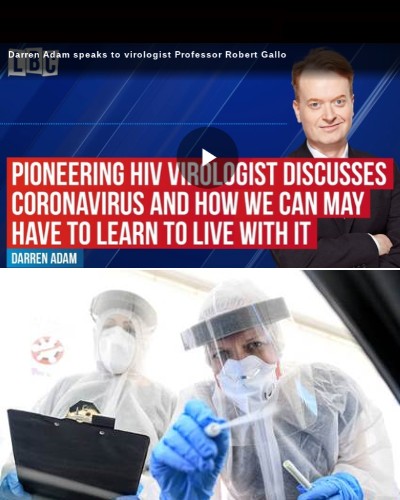
Monday, April 27, 2020
Expert Breaks Down Coronavirus Research: Is it Worse than HIV? Is it Mutating?
IHV Co-Founder and Director, Robert Gallo, MD is interviewed on LBC, a radio station in the United Kingdom. Darren Adam had Professor Gallo on the line to discuss his research in the past and the work he's carrying out during the coronavirus crisis. "We have learned to live with HIV" Darren began, listing out how it has changed from a death sentence to a disease that humans can live a long life with. He wondered if this could be possibly the path we're taking with Covid-19.
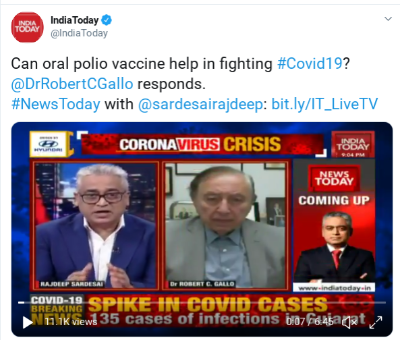
Wednesday, April 22, 2020
Dr. Robert Gallo on India Today Discussing the Oral Polio Vaccine for COVID-19
IndiaToday on Twitter - “Can oral polio vaccine help in fighting #Covid19? @DrRobertCGallo responds. #NewsToday with @sardesairajdeep
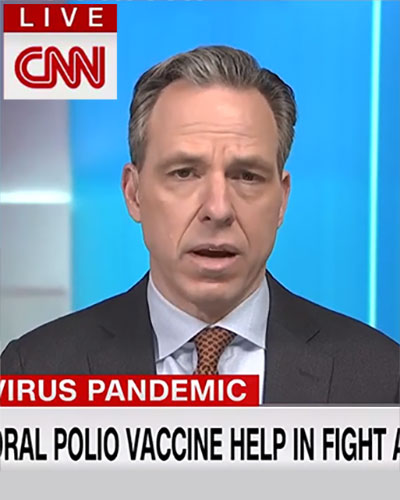
Friday, April 17, 2020
Dr. Robert Gallo Discusses Repurposing the Oral Polio Vaccine on CNN
Dr. Robert Gallo discusses repurposing the oral polio vaccine, drug therapies and more on COVID-19 on CNN’s The Lead with Jake Tapper, April 17, 2020.

Monday, April 13, 2020
Can an Oral Polio Vaccine Stop COVID-19?
Please see this just released Associated Press article, “Could old vaccines for other germs protect against COVID-19?” with Dr. Robert Gallo (Institute of Human Virology at the University of Maryland School of Medicine) and Dr. Konstantin Chumakov (U.S. Food and Drug Administration), both of the Global Virus Network (GVN).
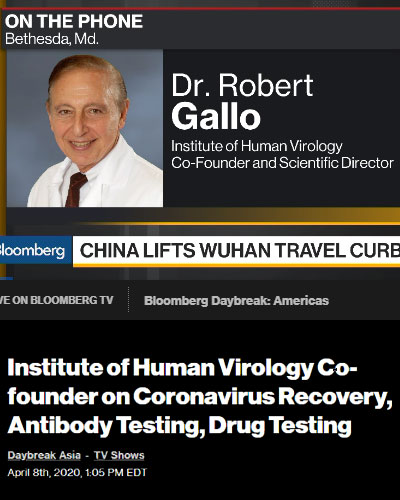
Wednesday, April 08, 2020
Institute of Human Virology Co-founder on Coronavirus Recovery, Antibody Testing, Drug Testing, Bloomberg TV
Dr. Robert Gallo, the Institute of Human Virology at the University of Maryland School of Medicine, Co-founder and director discusses the coronavirus. He speaks with Haidi Stroud-Watts and Shery Ahn on "Bloomberg Daybreak: Asia." (Source: Bloomberg)

Tuesday, April 07, 2020
A Deep Look Into The Coronavirus with Dr. Robert Gallo on WYPR (Baltimore’s local NPR station)
(WNPR) Dr. Robert Gallo has been getting to know viruses-- their targets and their weaknesses--for decades, even before he co-discovered the virus that causes AIDS in the 1980s. At the University of Maryland’s Institute for Human Virology, which he heads, Gallo is looking at the coronavirus; he joins us to share his thoughts. Gallo is also co-founder and international scientific advisor at the Global Virus Network.
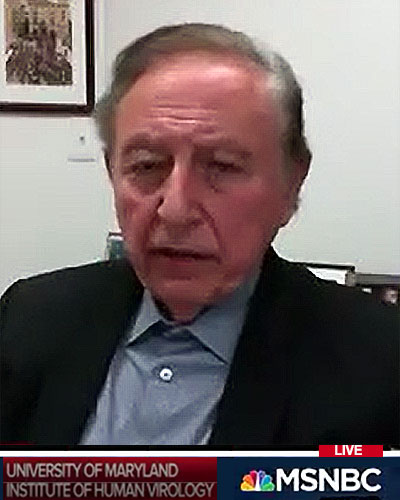
Wednesday, April 01, 2020
Dr. Robert Gallo Featured on MSNBC’s 11th Hour with Brian Williams
Robert Gallo, MD, Co-Founder and Director of the Institute of Human Virology, discusses SARS-CoV-2/COVID-19, specifically, how he thinks the fight against the Coronavirus is going thus far.
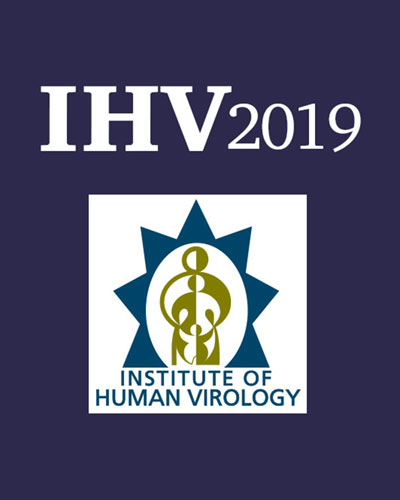
Friday, October 04, 2019
Institute of Human Virology Hosts 21st Annual International Meeting of Top Scientists on Ending the HIV/AIDS Epidemic in America and the Intersection of Opioid Use Disorder
The Institute of Human Virology (IHV) at the University of Maryland School of Medicine commenced IHV2019 held Thursday, October 3 through Friday, October 4 at the Four Seasons Hotel in Baltimore, Maryland. This year “Progress in HIV/AIDS: Challenges in 2020” opened with highlights about the recent plan for "Ending the HIV Epidemic by 2030” with expert opinions by ADM Brett Giroir, MD, Assistant Secretary for Health at the U.S. Department of Health and Human Services (HHS)

Monday, August 26, 2019
Dr. Robert Gallo Featured in Malcolm Gladwell's Podcast, "Revisionist History: The Obscure Virus Club"
"Revisionist History" by Malcolm Gladwell: “The Obscure Virus Club,” featuring three prominent virologists, including Dr. Robert Gallo (as well as Dr. Ludwig Gross and Dr. Howard Temin).

Monday, June 24, 2019
UM School of Medicine's Institute of Human Virology Awarded $40 Million Grant to Conduct HIV Population Surveys
Man Charurat, MD, Professor of Medicine, Director, Center for International Health, Education, and Biosecurity (CIHEB), and Director, Division of Epidemiology and Prevention, Institute of Human Virology (IHV) at the University of Maryland School of Medicine (UMSOM), has been awarded a five-year grant from the U.S. Centers for Disease Control and Prevention (CDC) to conduct HIV population-based HIV impact assessments worldwide to measure the progress towards the control of the HIV epidemic
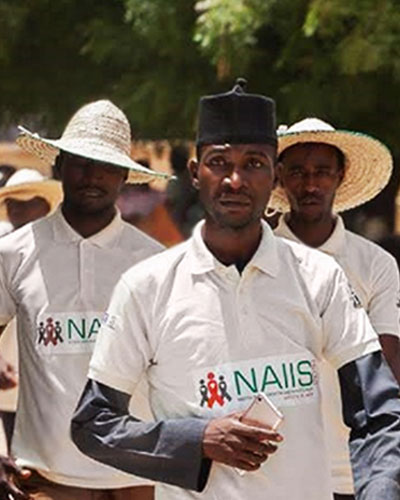
Wednesday, May 01, 2019
Large National Survey Shows Smaller HIV Epidemic in Nigeria Than Once Thought and Highlights Key Gaps
(CDC) The Government of Nigeria, the U.S. President’s Emergency Plan for AIDS Relief (PEPFAR), CDC, and the University of Maryland School of Medicine released new data from the Nigeria HIV/AIDS Indicator and Impact Survey (NAIIS), one of the largest population-based HIV/AIDS household surveys ever conducted. The NAIIS directly measured HIV prevalence and viral load suppression. According to the NAIIS results, the HIV prevalence in Nigeria is lower than previously thought, allowing the country to focus on providing services to the areas of greatest need to control the HIV epidemic.
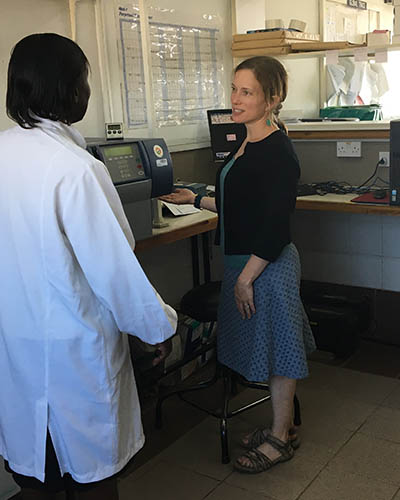
Wednesday, August 02, 2017
UM School of Medicine Receives $2 Million Grant for HIV Research in Malawi
The University of Maryland School of Medicine’s (UM SOM) Institute for Global Health (IGH) and the Institute of Human Virology (IHV) have been awarded a $2 million five-year grant from the Eunice Kennedy Shriver National Institute of Child Health and Human Development to study the impact exposure to HIV has on the immune systems of infants in utero and how those changes impact the ability of infants to fight off infections after birth.

Tuesday, October 25, 2016
"A Call to End HIV/AIDS in America" IHV Director Dr. Robert Gallo's Op-Ed in the Huffington Post
As the new Administration is presented with great challenges facing the United States, one will be a longtime foe, the U.S. HIV/AIDS epidemic. Since President Barack Obama was elected in 2008, I have publicly called on our country’s leaders to utilize the largest global health initiative in history - the President’s Emergency Plan for AIDS Relief (PEPFAR) - as a model to address the U.S. epidemic.

